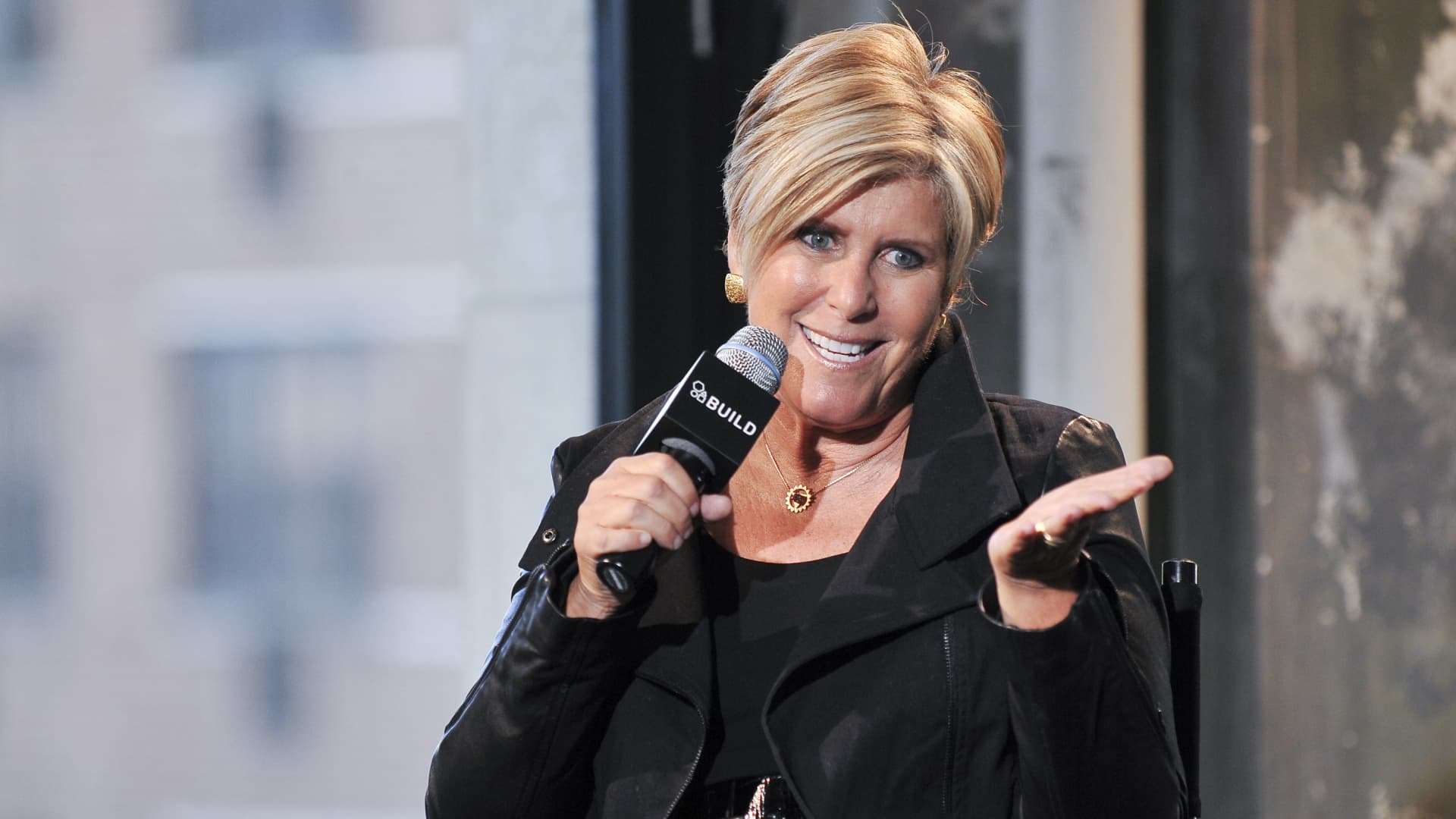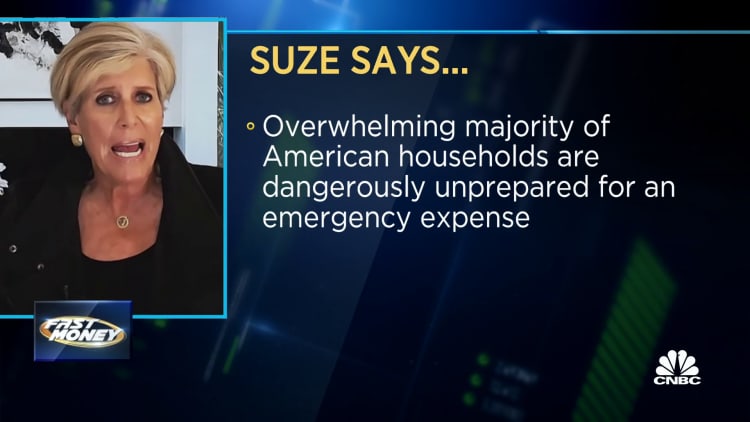How women answer 5 questions may be a financial wake-up call, personal finance expert Suze Orman says
Women tend to put other people's needs before their own, and that sets them back financially, Suze Orman said. Here's how to test where you stand financially.

Suze Orman speaks during AOL's BUILD Speaker Series at AOL Studios In New York.
Jenny Anderson | WireImage | Getty Images
At the end of each episode of her long-running eponymous CNBC show, Suze Orman would close out with the phrase, "People first, then money, then things."
Women took that to mean they should give to other people and be generous, according to Orman. Men, on the other hand, took it to mean they should put themselves first.
Years after those episodes aired, there is still a distinct difference between how women and men handle their finances, Orman told CNBC.com in an interview.
At times, women can be their own worst enemy, said Orman, who is now a co-founder of SecureSave, a start-up working with employers to provide emergency savings accounts.
More from Personal Finance:
The IRS plans to tax some NFTs as collectibles
Here's how to vet online financial advice
'Staying the course is the play' for investors
Whether or not you take control of your money will have big consequences for your future, she said.
"You will never be a woman who owns the power to control her destiny unless you have power over how you think, feel and act with your money — how you save it and how you invest it and how you spend it," Orman said.
"And none of you should be dependent on anybody else other than yourself," she said.
The message is one Orman has been working to get across through her "Women & Money" podcast. The tagline for the show is "and everybody smart enough to listen," and the show has a "tremendous" male following, according to Orman.

However, many listeners are older women — ages 60 and up — who "have absolutely nobody else to go to," she said.
A key inflection point in these women's lives tends to be the deaths of their spouses, Orman said. At that time, many women realize just how in the dark they are about their finances because they let their significant other handle the bulk of the responsibilities, she said.
Over the years, Orman estimates, she has talked to thousands of women in that same predicament.
Savings is one of the first places where women can start to strengthen their relationship with money, a concept that helped inspire Orman to co-found SecureSave in 2020.
You will never be a woman who owns the power to control her destiny unless you have power over how you think, feel and act with your money.
Suze Orman
personal finance expert
"There has never been a time more important for an emergency savings account since 2008 as there is right now," Orman said.
A recent survey conducted by SecureSave found just 24% of women say they can pay for an unexpected emergency expense in cash, versus 41% of men.
Meanwhile, 64% of women said their personal savings had dropped in the past year, compared with 43% of men.
The results are evidence that women do not put themselves first, Orman said.
A wake-up call for women's finances
Simpleimages | Moment | Getty Images
Women can test just how much they know about their money by asking themselves some key questions, Orman said.
They include:
If you own your home, do you know the interest rate on your mortgage?Do you know the current interest rate on your savings account?Do you know whether the money you have invested at a brokerage firm is insured?Do you know if the money in your 401(k) plan is protected?Do you know what your 401(k) or other retirement plan is invested in?If you can't answer yes to all of these, consider it a financial wake-up call, Orman said.
The less you know about your finances, the more likely it is you will make a mistake, she said.
"I always say to people the biggest mistake you will make is the mistake you don't even know that you are making," Orman said.
3 changes women should make now
Beyond brushing up on their financial knowledge, women should also make some key changes.
On a recent "Women & Money" episode, guest Sheila Bair, chair of the Federal Deposit Insurance Corporation from 2006 to 2011, said building up your savings now is "absolutely the best thing you can do."
The ideal places to put that money include a bank, credit union or government short-term money market fund where it can be easily accessed, Bair said.
"The worst thing that happens to people is you get into a recession, they don't have savings, their income goes down, then they have to borrow," Bair said. "So they've got a debt load, too."
Every woman should have a savings account, whether it is through their employer or independently, Orman said. Every woman should also have a credit card exclusively in her own name, she said.
As rising interest rates make carrying credit card debt more expensive, paying down those balances, if they have them, should be toward the top of their to-do list.
"They need to make that almost a No. 1 priority, as well," Orman said.
Join us virtually for Women and Wealth, a CNBC Your Money event, on April 11, where financial experts will share how women can increase their income, save for the future and make the most out of current opportunities. Register for free today.

 Tfoso
Tfoso 






























